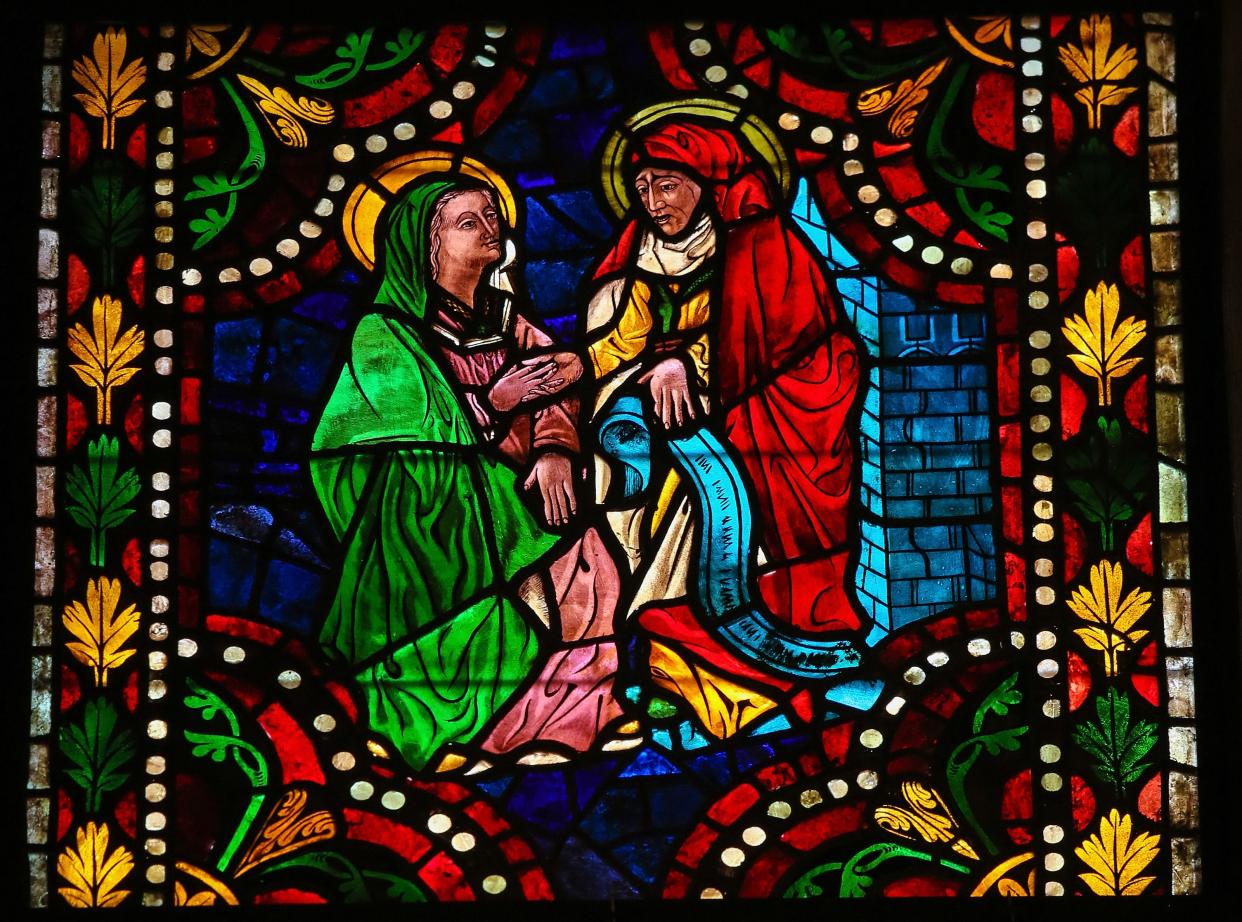Pastor: Sometimes a person must hear they are a blessing before they can be it

It’s quite popular to believe that Jesus was always going to make it here, no matter what. But given the stories about how the Light of the World arrived, it might be time to reconsider what it really took. There is a pivotal moment in the Gospel of Luke that makes one wonder what might (not) have happened, but for the folks who did their part.
Because the text tells us that Mary gave her consent (“Here I am, the servant of the Lord; let it be with me according to your word”), there is an assumption that she was immediately on board when the angel told her The Plan. We often make the mistake of skipping right to her song of praise, "The Magnificat," in which Mary rejoices and claims to be blessed. But that isn’t how it happened.
There are six verses in between the angel disappearing and Mary clearing her throat to sing, and they are crucial to getting us to the babe in the manger. If you read closely in between the lines of verse 38 and verse 39, you’ll find that Mary has a panic attack.
It explains why after the angel’s glow fades that the next verse tells us, “In those days, Mary set out and went with haste to a Judean town in the hill country.” She hightailed it out of there because she was scared. We know why. The prospects were grim for unwed, pregnant teen girls. She was either going to be shamed or stoned to death.
So, Mary runs to the safest place she knows. Church-people should note with chagrin that it was not to her local house of worship. Instead, Mary runs to Elizabeth’s front door. This is when everything changed.
Elizabeth greets Mary by blessing her. Not only does Elizabeth offer a blessing, but she also considers herself lucky to get the opportunity to welcome this terrified girl, saying, “And why has this happened to me, that the mother of my Lord comes to me?”
Elizabeth’s generosity changes the entire arc of the story. When does Mary sing "The Magnificat?" When does she find her voice? When is she convinced that everything is going to work out? After she gets help, when she finds refuge, in the wake of being embraced. Only then is it that Mary sings about being lifted up, the hungry being filled with good things and the rich sent away empty.
It seems that Elizabeth’s extravagant welcome is the linchpin of the story ― not Mary’s virginity, not the angel and not inevitability. Mary needed someone to see her, to name her belovedness and welcome her with love. No strings attached.
Our story reminds us that the Good News came because someone held open the door.
It is what begs us to change the question that we ask families at the border from, “Where are your papers?” to “Why has this happened to me, that the children of my God come to me?”
It is why pretending that the Bible says “God only helps those who helps themselves” is decidedly un-Christian, for Elizabeth did not insist on work requirements so that Mary could earn assistance.
It is why we must never tire of reminding others that they are a blessing, for sometimes we must hear it before we can be it.
Words of blessing and extravagant welcome — these are our best traditions. This season, and every season. Merry Christmas, beloveds. Merry Christmas.

The Rev. Lori Allen Walke is senior minister at Mayflower Congregational United Church of Christ.
This article originally appeared on Oklahoman: In the Bible, Elizabeth didn't ask Mary to earn her blessing; she gave it

